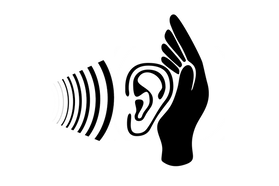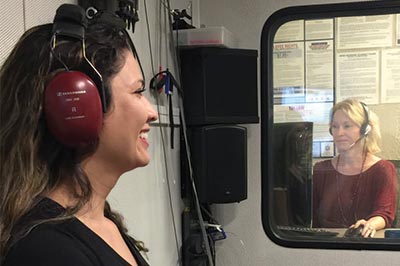AWARD WINNING COMPREHENSIVE TINNITUS SOUND RELIEF TREATMENT, HEARING CARE, AND HEARING AIDS IN TEMPE, AZ
Following industry best practices supported by evidence-based care.
ARIZONA'S EXCLUSIVE PROVIDER OF

FDA APPROVED

MOST INSURANCES ACCEPTED
We accept most insurance plans including State of Arizona, Medicare, Medicare Advantage Supplements, AARP Medicare, Aetna (AmeriBen/Assurant/Meritain), UHC Dual Complete, AmBetter, Bright Health, GEHA, HealthNet, BlueCross BlueShield, Cigna (Amplifon), MultiPlan, NEI, and United Healthcare.
We will be happy to talk to your insurance provider and file your claims when applicable – please be aware that not all of our services are billable/covered.

Your Search for Hearing Care and Tinnitus Sound Relief is Over
Providing over 25 years of experience to hearing loss services and tinnitus care.
Since 2002 we have transformed the lives of over 35,000 patients with our evidence-based treatment. The Rohe Method® is a unique treatment program that ties together hearing loss, brain function, and emotional difficulties from feeling isolated.
We offer multiple convenient appointment times at our Tempe office in addition to the potential option to begin treatment on the same day as your initial assessment.
We are a family-owned private practice promising to provide you with high-quality treatment while using advanced technology focused on your hearing loss and brain function.
OFFERING CUTTING EDGE LENIRE TREATMENT FOR TINNITUS
We are proud to be a part of the elite Lead Team chosen by Neuromod to offer this treatment in the United States. Lenire is an evidence-based treatment device proven to soothe tinnitus. Use it from the comfort of home to manage your tinnitus with the help of qualified healthcare professionals.
How does it work? The device plays sounds from headphones and provides gentle pulses to the tongue via a Tonguetip. The sounds and pulses work together to retrain your brain. You pay less attention to your tinnitus reducing its impact on your day-to-day life.
What is the device? Bluetooth Headphones, which are provided, deliver customized sounds to activate the auditory nerve to the brain. Tonguetip, specifically designed to treat tinnitus, sits comfortably in the closed mouth. Tiny electrodes on the Tonguetip deliver mild and safe energy pulses to the surface of the tip of the tongue. Controller, a lightweight handheld device that controls the timing and intensity of the treatment. You can start, pause and resume the treatment session, adjust the volume of the sound, and adjust the level of the tongue stimulation. The settings are customized by your healthcare professional to suit your tinnitus after an assessment to make sure you’re suitable.
What is the research behind Lenire? Lenire is the first device of its kind to receive a grant of approval from the FDA to treat tinnitus. This follows a large-scale clinical trial designed to meet the FDA's requirements during which 83% of patients recommended Lenire for the treatment of tinnitus.
CUTTING EDGE SOLUTIONS
FOR TINNITUS
The Rohe Method® is an extended 4-6 month program of robust counseling and education that addresses the anxiety, insomnia, fear, and frustration that accompany tinnitus.
FULL SERVICE
HEARING CLINIC
Our experienced team offers hearing loss rehabilitation, treatment for tinnitus, custom ear protection for musicians, and much more!
ADVANCED
HEARING AIDS
Restore your hearing clarity with cutting-edge hearing aids from major brands like ReSound, Oticon, Phonak, Signia, and Starkey.
FLEXIBLE
FINANCING OPTIONS
We accept most insurance plans, offer financing options through CareCredit, and TreatmentFi, and Patient Care Plans for additional savings.
A Note From Dr. Rohe
Dear Friend,
At The Tinnitus & Hearing Center of Arizona, we go above and beyond to provide you with a hearing rehabilitation solution that lets you enjoy the sounds of the world around you. For every patient, uncompromising quality is our top priority when it comes to your hearing care. Since 2002, over 35,000 patients have trusted us with their hearing health, and we look forward to providing you with the same excellent hearing care.
Thanks to our modern in-office technologies, we are pleased to be able to offer you increased convenience and comfort when you take advantage of our available hearing aids and hearing loss rehabilitation options. If you or a loved one has suffered from a sense of isolation due to hearing loss or ringing in your ears (tinnitus), our retraining program, The Rohe Method®, offers extended counseling and education to help you reconnect with your loved ones.
Ultimately, you should do your research when choosing your audiologist in Tempe, AZ. To help you, we wrote, “The Top 10 Things You Must Know Before Choosing Your Hearing Healthcare Provider.” Inside this report, you will find the ten most crucial things to know (and what to ask) before you commit to a hearing loss rehabilitation plan. If any questions arise as you read this report, feel free to call us at 480-831-6159 – we are here for you!
To Your Hearing Clarity and Sound Relief,
Dr. Allen Rohe, Au.D.
Amy Rohe, M.A.
P.S. If you are looking for a real-world solution to your hearing loss or tinnitus, then you are in the right place! Schedule your New Patient Assessment today and find out how our experienced audiologists can help you!

THE TOP 10 THINGS YOU MUST KNOW BEFORE CHOOSING YOUR HEARING HEALTHCARE PROVIDER
If you are researching for the most qualified audiologist in Phoenix, AZ for your family, then you are in the right place at Tinnitus & Hearing Center of Arizona! Just like all ears are different, our Tempe hearing clinic is different. For help with your research, read the free report below provided by Dr. Rohe.
QUESTIONS?
Sign up to our newsletter
We will get back to you as soon as possible
Please try again later
Your Top-Rated & New Favorite Audiologists and Sound Relief Specialists in Tempe, AZ
-

"My experience in 10 + years is nothing less than excellent. Allen and Amy are very knowledgeable in diagnosing your hearing needs and fitting with the right quality product for it. They always answer all your questions."
Nancy M.
★★★★★

"Friendly and courteous staff, they didn't waste time with things I already had done and had everything set up ready for me. The place isn't hard to find and the office is clean and everyone was very efficient. Definitely recommend!"
Jennifer K.
★★★★★

"Dr. Rohe and staff are very caring and professional. I have been a patient of Dr Rohe for 3 years and have nothing but praise for for his help with my tinnitus and hearing problems. I highly recommend him."
Christina M.
★★★★★
Button
"The Doctor spent 2 hours with me and I feel better and hear better already! I have never been treated so well by any doctors. He is very knowledgeable and puts his training to work and the results are amazing!"
James M.
★★★★★
Button
What to Expect on Your First Visit
OUR TEMPE OFFICE
CONTACT US
480-831-6159
480-347-0945 (fax)

WE SERVICE ALL THE FOLLOWING TOWNS AND SURROUNDING AREAS
Tempe,
Scottsdale, Chandler,
Mesa, Phoenix, Gilbert, Sun Lakes, Paradise Valley, Cave Creek, Queen Creek, San Tan Valley, Flagstaff, Sedona, Tucson
PROUDLY PROVIDING SERVICE TO THE FOLLOWING RETIREMENT COMMUNITIES
Sun Lakes, Sun City, Friendship Village










